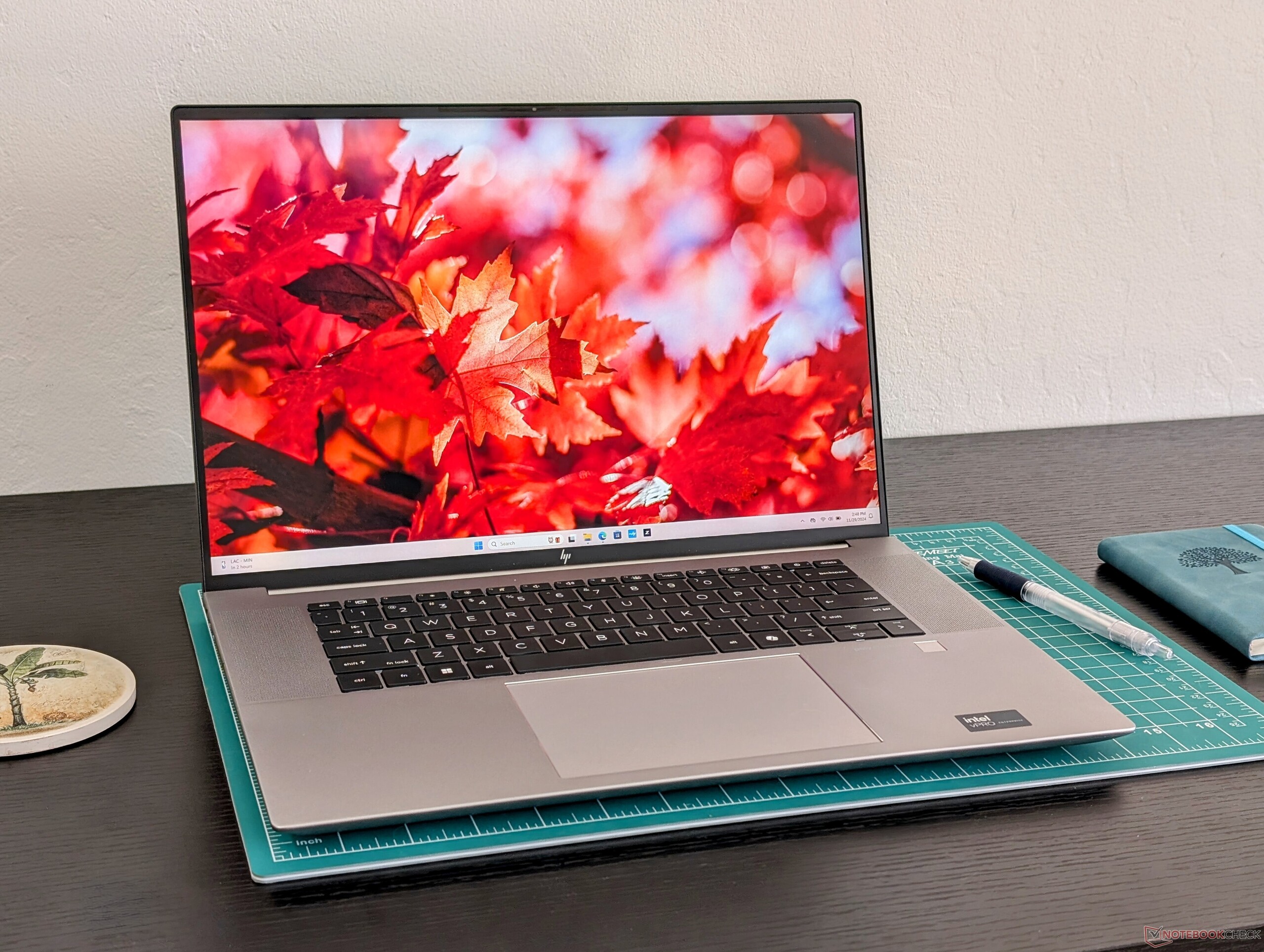
Análisis de la estación de trabajo HP ZBook Studio 16 G11: Ligereza y rendimiento a raudales
Procesador actualizado y gráficos RTX Ada.
Una de las estaciones de trabajo de 16 pulgadas más ligeras de HP recibe nuevas opciones de procesador para un rendimiento notablemente más rápido que antes. Por lo demás, se trata visualmente del mismo diseño que el ZBook Studio 16 G9 o G10 para una experiencia de usuario esencialmente idéntica.Allen Ngo, 👁 Allen Ngo (traducido por DeepL / Ninh Duy) Publicado 🇺🇸 🇫🇷 ...
Veredicto - Más ligero de lo esperado para una estación de trabajo de 16 pulgadas
El ZBook Studio 16 G11 destaca por su portabilidad y calidad de construcción a pesar de su delgadez y el gran tamaño de su pantalla de 16 pulgadas. Los profesionales que quieran algo lo suficientemente ligero para llevarlo a todas partes sin sacrificar el tamaño de la pantalla ni demasiado rendimiento encontrarán mucho que gustar en el Studio 16 G11, especialmente ahora que las nuevas opciones de GPU son notablemente más rápidas y eficientes que las que estaban disponibles en el modelo G9.
Por desgracia, el sistema sigue adoleciendo de muchos de los mismos defectos que los modelos G10 o G9 anteriores, ya que todos comparten el mismo chasis o esqueleto. La webcam borrosa de 1 MP y la falta de obturador de privacidad, por ejemplo, son indicativos de un diseño envejecido. Otros factores como las temperaturas de funcionamiento del núcleo y la duración de la batería son más cálidas y más cortas de lo que nos gustaría, respectivamente, mientras que la actualización de la CPU de Alder Lake-H a Meteor Lake-H no es tan grande como la de la GPU. Los usuarios que necesiten una potencia gráfica adicional más rápida que la RTX 3000 Ada tendrán que buscar alternativas más gruesas como el Serie ZBook Fury 16 que se pueden configurar con opciones RTX 5000 Ada.
También debemos señalar que experimentamos varios problemas de congelación en nuestra unidad de prueba. Puede valer la pena volver a comprobar su unidad en el momento de la compra para detectar cualquier comportamiento defectuoso.
Pro
Contra
Precio y disponibilidad
Un SKU inferior con el Core Ultra 7 y RTX 2000 Ada está disponible en Amazon por 3200 $. SKUs adicionales están disponibles directamente de HP.
Posibles contendientes en la comparación
Imagen | Modelo | Precio | Peso | Altura | Pantalla |
|---|---|---|---|---|---|
| HP ZBook Studio 16 G11 Intel Core Ultra 9 185H ⎘ NVIDIA RTX 3000 Ada Generation Laptop GPU ⎘ 64 GB Memoría, 1024 GB SSD | Amazon: $3,578.10 Precio de catálogo: 4300 USD | 1.8 kg | 19 mm | 16.00" 3840x2400 283 PPI IPS | |
| HP ZBook Studio 16 G9 62U04EA Intel Core i7-12800H ⎘ NVIDIA RTX A2000 Laptop GPU ⎘ 32 GB Memoría, 1024 GB SSD | Amazon: 1. $2,459.77 HP ZBook Studio 16 G9 16" Mo... 2. $1,779.77 HP ZBook Studio 16 G9 16" Mo... 3. $179.93 NE160QAM-NZ1 Replacement for... Precio de catálogo: 3300€ | 1.8 kg | 19 mm | 16.00" 3840x2400 283 PPI IPS | |
| HP ZBook Power 16 G11 A AMD Ryzen 7 8845HS ⎘ NVIDIA RTX 2000 Ada Generation Laptop GPU ⎘ 64 GB Memoría, 2048 GB SSD | Amazon: 1. $1,199.99 HP ZBook Power 16 G11 Mobile... 2. $1,768.31 HP ZBook Power G11 A 16" Mob... 3. $2,028.89 HP ZBook Power G11 16" Mobil... Precio de catálogo: 2100 USD | 2.2 kg | 22.9 mm | 16.00" 2560x1600 189 PPI IPS | |
| Lenovo ThinkPad P16 Gen 2 Intel Core i7-14700HX ⎘ NVIDIA RTX 4000 Ada Generation Laptop GPU ⎘ 32 GB Memoría, 1024 GB SSD | Amazon: Precio de catálogo: 3500 USD | 3.1 kg | 30.23 mm | 16.00" 2560x1600 189 PPI IPS | |
| Dell Precision 5690 Intel Core Ultra 9 185H ⎘ Nvidia RTX 5000 Ada Generation Laptop GPU ⎘ 32 GB Memoría, 2048 GB SSD | Amazon: $1,920.00 Precio de catálogo: 5900 USD | 2.3 kg | 22.17 mm | 16.00" 3840x2400 283 PPI OLED | |
| MSI CreatorPro Z16P B12UKST Intel Core i7-12700H ⎘ NVIDIA RTX A3000 Laptop GPU ⎘ 32 GB Memoría, 1024 GB SSD | Amazon: 1. $95.99 240W 230W USB Tip Charger fo... 2. $52.99 Factory Original 8GB (1x8GB)... 3. $54.00 Laptop Replacement Keyboard ... Precio de catálogo: 3500€ | 2.4 kg | 19 mm | 16.00" 2560x1600 189 PPI IPS | |
| Lenovo ThinkPad P1 Gen 7 21KV001SGE Intel Core Ultra 7 155H ⎘ NVIDIA GeForce RTX 4060 Laptop GPU ⎘ 32 GB Memoría, 1024 GB SSD | Amazon: $2,679.95 Precio de catálogo: 3239 Euro | 2 kg | 20.5 mm | 16.00" 2560x1600 189 PPI IPS LED |
La última vez que revisamos la serie ZBook Studio 16 fue el Modelo G9 allá por 2022. Para 2024, el último modelo es ahora el G11 equipado con ambas opciones más rápidas de CPU Intel Meteor Lake y GPU Nvidia Ada Lovelace para reemplazar las opciones Alder Lake y Ampere de las versiones Studio 16 más antiguas.
Nuestra unidad de prueba es la configuración de gama más alta con la CPU Core Ultra 9 185H vPro, la GPU RTX 3000 Ada y la pantalla IPS de 2400p 120 Hz por aproximadamente 2800 USD. Otras SKU comienzan con el Core Ultra 7 155H, gráficos Arc integrados, GeForce RTX 4070, o pantalla 1200p en su lugar, como se describe en la página oficial de productos de HP https://www.hp.com/us-en/shop/pdp/hp-zbook-studio-g11-mobile-workstation-pc-customizable-9q574av-mb.
Las alternativas a la ZBook Studio 16 G11 incluyen otras estaciones de trabajo móviles de 16 pulgadas como la Lenovo ThinkPad P16 Gen 2, Dell Precision 5690o MSI CreatorPro Z16P.
Más opiniones sobre HP:
Especificaciones
Top 10 Análisis
» Top 10 Portátiles Multimedia
» Top 10 Portátiles de Juego
» Top 10 Portátiles de Juego ligeros
» Top 10 Portátiles Asequibles de Oficina/Empresa
» Top 10 Portátiles de Juego Ligeros
» Top 10 Portátiles de Oficina/Empresa Premium
» Top 10 Estaciones de Trabajo
» Top 10 Subportátiles
» Top 10 Ultrabooks
» Top 10 Convertibles
» Top 10 Tablets
» Top 10 Tablets Windows
» Top 10 Tablets de menos de 250 Euros
» Top 10 Phablets (>5.5")
» Top 10 Smartphones
» Top 10 Smartphones (≤5")
» Top 10 Smartphones de menos de 300 Euros
» Top 10 Smartphones de menos de 120 Euros
» Top 10 Portátiles de menos de 1000 Euros
» Top 10 Portátiles de menos de 500 Euros
» Top 10 Portátiles de menos de 300 Euros
» Los Mejores Displays de Portátiles Analizados por Notebookcheck
Caso
El ZBook Studio 16 G11 utiliza el mismo chasis que el ZBook Studio 16 G9 de hace dos años. A pesar de su edad, sigue siendo un diseño sólido que destaca sobre todo por su delgadez y portabilidad. El MSI CreatorPro Z16P o el Dell Precision 5690, por ejemplo, son cada uno más grandes y notablemente más pesados en al menos 400 a 500 gramos.
Conectividad
Aunque las opciones de puerto no han cambiado, el lector MicroSD integrado en nuestra unidad estaba averiado, por lo que no pudimos probar su rendimiento en cuanto a velocidad de transferencia.
Comunicación
La tecnología inalámbrica se ha actualizado del MediaTek Wi-Fi 6E MT7922 al Intel BE200 para soportar tanto Wi-Fi 7 como Bluetooth 5.4.
Cámara web
Por desgracia, la cámara web sigue siendo de 720p o sólo 1 MP, mientras que la gran mayoría de los demás portátiles ya han dejado atrás las opciones de 1 MP.
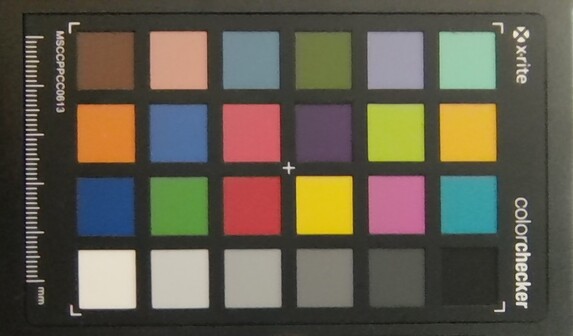
Mantenimiento
El panel inferior es fácilmente desmontable con sólo un destornillador Torx. HP proporciona un vídeo de servicio oficial para muchos de sus modelos a diferencia de otros grandes fabricantes.
Sostenibilidad
HP utiliza plásticos y metales reciclados en todos sus portátiles fabricados desde 2022. Sin embargo, la proporción de materiales reciclados respecto a los no reciclados varía según el modelo.
El embalaje es principalmente de cartón y papel, con algún envoltorio de plástico para el portátil y el adaptador de CA.
Garantía
Se aplica una garantía limitada del fabricante de tres años si se adquiere en EE.UU.
Mostrar
HP ha cambiado de proveedor de paneles 4K, pasando de BOE en el Studio 16 G9 a AU Optronics para nuestro Studio 16 G11. Por lo demás, sus atributos principales son esencialmente idénticos en términos de frecuencia de actualización (120 Hz) y cobertura de color (100% DCI-P3). El brillo, sin embargo, es más tenue esta vez en casi un 30% y el HDR sigue sin ser compatible. Para solucionar esto, existe una opción ligeramente más brillante de 500 nits.
El modelo no viene con ninguna opción OLED en el momento de escribir estas líneas.
| |||||||||||||||||||||||||
iluminación: 92 %
Brillo con batería: 404.3 cd/m²
Contraste: 1444:1 (Negro: 0.28 cd/m²)
ΔE Color 2.63 | 0.5-29.43 Ø4.87, calibrated: 1.46
ΔE Greyscale 2.1 | 0.5-98 Ø5.1
85.7% AdobeRGB 1998 (Argyll 2.2.0 3D)
99.9% sRGB (Argyll 2.2.0 3D)
97.7% Display P3 (Argyll 2.2.0 3D)
Gamma: 2.3
| HP ZBook Studio 16 G11 AUO87A8, IPS, 3840x2400, 16", 120 Hz | HP ZBook Studio 16 G9 62U04EA BOE0A52, IPS, 3840x2400, 16", 120 Hz | HP ZBook Power 16 G11 A AUOA0A9, IPS, 2560x1600, 16", 120 Hz | Lenovo ThinkPad P16 Gen 2 NE160QDM-NY1, IPS, 2560x1600, 16", 165 Hz | Dell Precision 5690 Samsung 160YV03, OLED, 3840x2400, 16", 60 Hz | MSI CreatorPro Z16P B12UKST B160QAN02.N, IPS, 2560x1600, 16", 165 Hz | Lenovo ThinkPad P1 Gen 7 21KV001SGE MNG007DA1-9 , IPS LED, 2560x1600, 16", 165 Hz | |
|---|---|---|---|---|---|---|---|
| Display | 0% | -16% | -17% | 5% | 1% | -16% | |
| Display P3 Coverage | 97.7 | 97.5 0% | 69.1 -29% | 68.4 -30% | 99.8 2% | 97.6 0% | 69.4 -29% |
| sRGB Coverage | 99.9 | 99.9 0% | 97.7 -2% | 96.9 -3% | 100 0% | 99.9 0% | 97.6 -2% |
| AdobeRGB 1998 Coverage | 85.7 | 86.3 1% | 71 -17% | 70.6 -18% | 96.6 13% | 87.4 2% | 71.8 -16% |
| Response Times | 17% | 13% | 4% | 86% | 20% | 11% | |
| Response Time Grey 50% / Grey 80% * | 14.2 ? | 15.3 ? -8% | 13.6 ? 4% | 14.1 ? 1% | 1.7 ? 88% | 12.8 ? 10% | 11.2 ? 21% |
| Response Time Black / White * | 10.6 ? | 6.1 ? 42% | 8.4 ? 21% | 9.9 ? 7% | 1.7 ? 84% | 7.4 ? 30% | 10.6 ? -0% |
| PWM Frequency | 60 ? | ||||||
| Screen | 18% | -20% | 17% | -11% | 10% | -32% | |
| Brightness middle | 404.3 | 554 37% | 470.7 16% | 531.5 31% | 348.1 -14% | 407 1% | 516 28% |
| Brightness | 405 | 516 27% | 431 6% | 499 23% | 351 -13% | 388 -4% | 505 25% |
| Brightness Distribution | 92 | 84 -9% | 88 -4% | 89 -3% | 97 5% | 88 -4% | 89 -3% |
| Black Level * | 0.28 | 0.47 -68% | 0.57 -104% | 0.38 -36% | 0.36 -29% | 0.41 -46% | |
| Contrast | 1444 | 1179 -18% | 826 -43% | 1399 -3% | 1131 -22% | 1259 -13% | |
| Colorchecker dE 2000 * | 2.63 | 1 62% | 2.16 18% | 1.82 31% | 4.18 -59% | 1.3 51% | 3.5 -33% |
| Colorchecker dE 2000 max. * | 4.48 | 2.4 46% | 4.39 2% | 4.1 8% | 6.68 -49% | 2.5 44% | 8.8 -96% |
| Colorchecker dE 2000 calibrated * | 1.46 | 0.6 59% | 1.37 6% | 0.63 57% | 0.97 34% | 0.7 52% | 1.2 18% |
| Greyscale dE 2000 * | 2.1 | 1.6 24% | 3.7 -76% | 1.2 43% | 1.7 19% | 2.1 -0% | 5.6 -167% |
| Gamma | 2.3 96% | 2.29 96% | 2.38 92% | 2.15 102% | 2.2 100% | 2.26 97% | 2.27 97% |
| CCT | 6810 95% | 6458 101% | 6765 96% | 6484 100% | 6198 105% | 6437 101% | 6071 107% |
| Media total (Programa/Opciones) | 12% /
14% | -8% /
-14% | 1% /
8% | 27% /
9% | 10% /
9% | -12% /
-22% |
* ... más pequeño es mejor
La pantalla viene precalibrada según la norma P3, con unos valores medios bajos de deltaE en escala de grises y color de sólo 2,1 y 2,63, respectivamente.
Tiempos de respuesta del display
| ↔ Tiempo de respuesta de Negro a Blanco | ||
|---|---|---|
| 10.6 ms ... subida ↗ y bajada ↘ combinada | ↗ 6.1 ms subida | |
| ↘ 4.5 ms bajada | ||
| La pantalla mostró buenos tiempos de respuesta en nuestros tests pero podría ser demasiado lenta para los jugones competitivos. En comparación, todos los dispositivos de prueba van de ##min### (mínimo) a 240 (máximo) ms. » 26 % de todos los dispositivos son mejores. Esto quiere decir que el tiempo de respuesta medido es mejor que la media (20.8 ms) de todos los dispositivos testados. | ||
| ↔ Tiempo de respuesta 50% Gris a 80% Gris | ||
| 14.2 ms ... subida ↗ y bajada ↘ combinada | ↗ 6.9 ms subida | |
| ↘ 7.3 ms bajada | ||
| La pantalla mostró buenos tiempos de respuesta en nuestros tests pero podría ser demasiado lenta para los jugones competitivos. En comparación, todos los dispositivos de prueba van de ##min### (mínimo) a 636 (máximo) ms. » 25 % de todos los dispositivos son mejores. Esto quiere decir que el tiempo de respuesta medido es mejor que la media (32.5 ms) de todos los dispositivos testados. | ||
Parpadeo de Pantalla / PWM (Pulse-Width Modulation)
| Parpadeo de Pantalla / PWM no detectado | |||
Comparación: 53 % de todos los dispositivos testados no usaron PWM para atenuar el display. Si se usó, medimos una media de 8516 (mínimo: 5 - máxmo: 343500) Hz. | |||
Rendimiento
Condiciones de prueba
Pusimos Windows y MyHP en modo Rendimiento antes de ejecutar los puntos de referencia que se indican a continuación.
Procesador
Aunque no es tan rápido como la serie adyacente Raptor Lake-HX, el basado en Meteor Lake Core Ultra 9 185H sigue siendo una ligera mejora respecto al Core i7-12800H en el ZBook Studio 16 G9 en aproximadamente un 10 por ciento cuando se trata de tareas multihilo. Por desgracia, no puede sostener velocidades de reloj Turbo Boost durante mucho tiempo a pesar del factor de forma relativamente grande de 16 pulgadas.
Cinebench R15 Multi Loop
Cinebench R23: Multi Core | Single Core
Cinebench R20: CPU (Multi Core) | CPU (Single Core)
Cinebench R15: CPU Multi 64Bit | CPU Single 64Bit
Blender: v2.79 BMW27 CPU
7-Zip 18.03: 7z b 4 | 7z b 4 -mmt1
Geekbench 6.4: Multi-Core | Single-Core
Geekbench 5.5: Multi-Core | Single-Core
HWBOT x265 Benchmark v2.2: 4k Preset
LibreOffice : 20 Documents To PDF
R Benchmark 2.5: Overall mean
| Geekbench 6.4 / Single-Core | |
| HP ZBook Fury 16 G10 | |
| HP ZBook Fury 16 G11 | |
| Lenovo ThinkPad P16 Gen 2 | |
| Lenovo ThinkPad P1 G6 21FV001KUS | |
| Lenovo ThinkPad P1 G6-21FV000DGE | |
| HP ZBook Power 16 G11 A | |
| Media de la clase Workstation (2352 - 2949, n=23, últimos 2 años) | |
| Dell Precision 5000 5680 | |
| Lenovo ThinkPad P16v G1 AMD | |
| Dell Precision 5690 | |
| HP ZBook Studio 16 G11 | |
| Lenovo ThinkPad P16s G2 21K9000CGE | |
| Medio Intel Core Ultra 9 185H (1490 - 2573, n=19) | |
| Lenovo ThinkPad P1 Gen 7 21KV001SGE | |
Cinebench R23: Multi Core | Single Core
Cinebench R20: CPU (Multi Core) | CPU (Single Core)
Cinebench R15: CPU Multi 64Bit | CPU Single 64Bit
Blender: v2.79 BMW27 CPU
7-Zip 18.03: 7z b 4 | 7z b 4 -mmt1
Geekbench 6.4: Multi-Core | Single-Core
Geekbench 5.5: Multi-Core | Single-Core
HWBOT x265 Benchmark v2.2: 4k Preset
LibreOffice : 20 Documents To PDF
R Benchmark 2.5: Overall mean
* ... más pequeño es mejor
AIDA64: FP32 Ray-Trace | FPU Julia | CPU SHA3 | CPU Queen | FPU SinJulia | FPU Mandel | CPU AES | CPU ZLib | FP64 Ray-Trace | CPU PhotoWorxx
| Performance Rating | |
| Lenovo ThinkPad P16 Gen 2 | |
| HP ZBook Power 16 G11 A | |
| Dell Precision 5690 | |
| HP ZBook Studio 16 G11 | |
| Lenovo ThinkPad P1 Gen 7 21KV001SGE | |
| Medio Intel Core Ultra 9 185H | |
| MSI CreatorPro Z16P B12UKST | |
| HP ZBook Studio 16 G9 62U04EA | |
| AIDA64 / FP32 Ray-Trace | |
| HP ZBook Power 16 G11 A | |
| Lenovo ThinkPad P16 Gen 2 | |
| Dell Precision 5690 | |
| Lenovo ThinkPad P1 Gen 7 21KV001SGE | |
| HP ZBook Studio 16 G11 | |
| Medio Intel Core Ultra 9 185H (9220 - 18676, n=19) | |
| HP ZBook Studio 16 G9 62U04EA | |
| MSI CreatorPro Z16P B12UKST | |
| AIDA64 / FPU Julia | |
| HP ZBook Power 16 G11 A | |
| Lenovo ThinkPad P16 Gen 2 | |
| Dell Precision 5690 | |
| HP ZBook Studio 16 G11 | |
| Lenovo ThinkPad P1 Gen 7 21KV001SGE | |
| Medio Intel Core Ultra 9 185H (48865 - 96463, n=19) | |
| HP ZBook Studio 16 G9 62U04EA | |
| MSI CreatorPro Z16P B12UKST | |
| AIDA64 / CPU SHA3 | |
| Lenovo ThinkPad P16 Gen 2 | |
| HP ZBook Power 16 G11 A | |
| Dell Precision 5690 | |
| HP ZBook Studio 16 G11 | |
| Lenovo ThinkPad P1 Gen 7 21KV001SGE | |
| Medio Intel Core Ultra 9 185H (2394 - 4534, n=19) | |
| HP ZBook Studio 16 G9 62U04EA | |
| MSI CreatorPro Z16P B12UKST | |
| AIDA64 / CPU Queen | |
| Lenovo ThinkPad P16 Gen 2 | |
| HP ZBook Power 16 G11 A | |
| HP ZBook Studio 16 G9 62U04EA | |
| MSI CreatorPro Z16P B12UKST | |
| Dell Precision 5690 | |
| HP ZBook Studio 16 G11 | |
| Lenovo ThinkPad P1 Gen 7 21KV001SGE | |
| Medio Intel Core Ultra 9 185H (66785 - 95241, n=19) | |
| AIDA64 / FPU SinJulia | |
| HP ZBook Power 16 G11 A | |
| Lenovo ThinkPad P16 Gen 2 | |
| Dell Precision 5690 | |
| HP ZBook Studio 16 G11 | |
| Lenovo ThinkPad P1 Gen 7 21KV001SGE | |
| Medio Intel Core Ultra 9 185H (7255 - 11392, n=19) | |
| HP ZBook Studio 16 G9 62U04EA | |
| MSI CreatorPro Z16P B12UKST | |
| AIDA64 / FPU Mandel | |
| HP ZBook Power 16 G11 A | |
| Lenovo ThinkPad P16 Gen 2 | |
| Dell Precision 5690 | |
| Lenovo ThinkPad P1 Gen 7 21KV001SGE | |
| HP ZBook Studio 16 G11 | |
| Medio Intel Core Ultra 9 185H (24004 - 48020, n=19) | |
| HP ZBook Studio 16 G9 62U04EA | |
| MSI CreatorPro Z16P B12UKST | |
| AIDA64 / CPU ZLib | |
| Lenovo ThinkPad P16 Gen 2 | |
| Dell Precision 5690 | |
| HP ZBook Studio 16 G11 | |
| Lenovo ThinkPad P1 Gen 7 21KV001SGE | |
| Medio Intel Core Ultra 9 185H (678 - 1341, n=19) | |
| HP ZBook Power 16 G11 A | |
| HP ZBook Studio 16 G9 62U04EA | |
| MSI CreatorPro Z16P B12UKST | |
| AIDA64 / FP64 Ray-Trace | |
| HP ZBook Power 16 G11 A | |
| Lenovo ThinkPad P16 Gen 2 | |
| Dell Precision 5690 | |
| Lenovo ThinkPad P1 Gen 7 21KV001SGE | |
| Medio Intel Core Ultra 9 185H (4428 - 10078, n=19) | |
| HP ZBook Studio 16 G9 62U04EA | |
| HP ZBook Studio 16 G11 | |
| MSI CreatorPro Z16P B12UKST | |
| AIDA64 / CPU PhotoWorxx | |
| HP ZBook Studio 16 G11 | |
| Dell Precision 5690 | |
| Medio Intel Core Ultra 9 185H (44547 - 53918, n=19) | |
| MSI CreatorPro Z16P B12UKST | |
| Lenovo ThinkPad P1 Gen 7 21KV001SGE | |
| HP ZBook Power 16 G11 A | |
| Lenovo ThinkPad P16 Gen 2 | |
| HP ZBook Studio 16 G9 62U04EA | |
Prueba de estrés
El limitado potencial Turbo Boost del sistema se hace evidente al observar más de cerca sus constantes vitales en tiempo real. Al ejecutar el estrés Prime95, por ejemplo, la CPU alcanzaría casi instantáneamente los 89 C durante los primeros segundos de la prueba. A continuación, bajaría rápidamente de 3,3 GHz y 89 W a sólo 2,3 GHz y 70 W para mantener la temperatura del núcleo por debajo de 100 C.
La temperatura de la CPU y la GPU al ejecutar Cyberpunk 2077 se estabilizaría en 68 C y 70 C, respectivamente, en comparación con los 75 C y 62 C del Dell Precision 5690 más potente.
| Reloj medio de la CPU (GHz) | Reloj medio de la GPU (MHz) | Temperatura media dela CPU (°C) | Temperatura media de la GPU (°C) | |
| Sistema en reposo | -- | -- | 51 | 45 |
| Prime95 Stress | 2.3 | -- | 99 | 54 |
| Prime95 + FurMark Estrés | 1,5 | 1410 | 80 | 67 |
| Cyberpunk 2077 Estrés | 1.0 | 1950 | 68 | 70 |
Rendimiento del sistema
Las puntuaciones PCMark son consistentemente más altas que el ZBook Studio 16 G9 saliente debido a las mejoras de la CPU y la GPU. Sin embargo, vale la pena señalar que experimentamos varias congelaciones y pantallas en negro durante las pruebas que requerirían un reinicio duro cada vez.
CrossMark: Overall | Productivity | Creativity | Responsiveness
WebXPRT 3: Overall
WebXPRT 4: Overall
Mozilla Kraken 1.1: Total
| PCMark 10 / Score | |
| Lenovo ThinkPad P16 Gen 2 | |
| Dell Precision 5690 | |
| HP ZBook Studio 16 G11 | |
| Medio Intel Core Ultra 9 185H, NVIDIA RTX 3000 Ada Generation Laptop GPU (7383 - 7537, n=2) | |
| HP ZBook Power 16 G11 A | |
| Lenovo ThinkPad P1 Gen 7 21KV001SGE | |
| MSI CreatorPro Z16P B12UKST | |
| HP ZBook Studio 16 G9 62U04EA | |
| PCMark 10 / Essentials | |
| Lenovo ThinkPad P16 Gen 2 | |
| Dell Precision 5690 | |
| Medio Intel Core Ultra 9 185H, NVIDIA RTX 3000 Ada Generation Laptop GPU (10514 - 11137, n=2) | |
| MSI CreatorPro Z16P B12UKST | |
| HP ZBook Studio 16 G11 | |
| HP ZBook Power 16 G11 A | |
| Lenovo ThinkPad P1 Gen 7 21KV001SGE | |
| HP ZBook Studio 16 G9 62U04EA | |
| PCMark 10 / Productivity | |
| Dell Precision 5690 | |
| Lenovo ThinkPad P16 Gen 2 | |
| HP ZBook Power 16 G11 A | |
| HP ZBook Studio 16 G11 | |
| MSI CreatorPro Z16P B12UKST | |
| Medio Intel Core Ultra 9 185H, NVIDIA RTX 3000 Ada Generation Laptop GPU (9153 - 9356, n=2) | |
| Lenovo ThinkPad P1 Gen 7 21KV001SGE | |
| HP ZBook Studio 16 G9 62U04EA | |
| PCMark 10 / Digital Content Creation | |
| Lenovo ThinkPad P16 Gen 2 | |
| Dell Precision 5690 | |
| HP ZBook Studio 16 G11 | |
| Lenovo ThinkPad P1 Gen 7 21KV001SGE | |
| Medio Intel Core Ultra 9 185H, NVIDIA RTX 3000 Ada Generation Laptop GPU (10716 - 11811, n=2) | |
| HP ZBook Power 16 G11 A | |
| MSI CreatorPro Z16P B12UKST | |
| HP ZBook Studio 16 G9 62U04EA | |
| CrossMark / Overall | |
| Lenovo ThinkPad P16 Gen 2 | |
| MSI CreatorPro Z16P B12UKST | |
| HP ZBook Studio 16 G9 62U04EA | |
| Dell Precision 5690 | |
| HP ZBook Power 16 G11 A | |
| HP ZBook Studio 16 G11 | |
| Medio Intel Core Ultra 9 185H, NVIDIA RTX 3000 Ada Generation Laptop GPU (1754 - 1770, n=2) | |
| Lenovo ThinkPad P1 Gen 7 21KV001SGE | |
| CrossMark / Productivity | |
| Lenovo ThinkPad P16 Gen 2 | |
| MSI CreatorPro Z16P B12UKST | |
| Dell Precision 5690 | |
| HP ZBook Studio 16 G9 62U04EA | |
| HP ZBook Power 16 G11 A | |
| HP ZBook Studio 16 G11 | |
| Medio Intel Core Ultra 9 185H, NVIDIA RTX 3000 Ada Generation Laptop GPU (1643 - 1686, n=2) | |
| Lenovo ThinkPad P1 Gen 7 21KV001SGE | |
| CrossMark / Creativity | |
| Lenovo ThinkPad P16 Gen 2 | |
| HP ZBook Studio 16 G9 62U04EA | |
| MSI CreatorPro Z16P B12UKST | |
| HP ZBook Power 16 G11 A | |
| Dell Precision 5690 | |
| Medio Intel Core Ultra 9 185H, NVIDIA RTX 3000 Ada Generation Laptop GPU (1981 - 2001, n=2) | |
| HP ZBook Studio 16 G11 | |
| Lenovo ThinkPad P1 Gen 7 21KV001SGE | |
| CrossMark / Responsiveness | |
| MSI CreatorPro Z16P B12UKST | |
| Lenovo ThinkPad P16 Gen 2 | |
| HP ZBook Studio 16 G9 62U04EA | |
| Dell Precision 5690 | |
| HP ZBook Studio 16 G11 | |
| Medio Intel Core Ultra 9 185H, NVIDIA RTX 3000 Ada Generation Laptop GPU (1438 - 1458, n=2) | |
| HP ZBook Power 16 G11 A | |
| Lenovo ThinkPad P1 Gen 7 21KV001SGE | |
| WebXPRT 3 / Overall | |
| Lenovo ThinkPad P16 Gen 2 | |
| MSI CreatorPro Z16P B12UKST | |
| HP ZBook Power 16 G11 A | |
| HP ZBook Studio 16 G9 62U04EA | |
| HP ZBook Studio 16 G11 | |
| Dell Precision 5690 | |
| Medio Intel Core Ultra 9 185H, NVIDIA RTX 3000 Ada Generation Laptop GPU (286 - 295, n=2) | |
| Lenovo ThinkPad P1 Gen 7 21KV001SGE | |
| WebXPRT 4 / Overall | |
| Lenovo ThinkPad P16 Gen 2 | |
| Dell Precision 5690 | |
| MSI CreatorPro Z16P B12UKST | |
| HP ZBook Studio 16 G9 62U04EA | |
| Medio Intel Core Ultra 9 185H, NVIDIA RTX 3000 Ada Generation Laptop GPU (261 - 268, n=2) | |
| HP ZBook Studio 16 G11 | |
| Lenovo ThinkPad P1 Gen 7 21KV001SGE | |
| HP ZBook Power 16 G11 A | |
| Mozilla Kraken 1.1 / Total | |
| HP ZBook Power 16 G11 A | |
| Lenovo ThinkPad P1 Gen 7 21KV001SGE | |
| MSI CreatorPro Z16P B12UKST | |
| Medio Intel Core Ultra 9 185H, NVIDIA RTX 3000 Ada Generation Laptop GPU (515 - 522, n=2) | |
| HP ZBook Studio 16 G11 | |
| HP ZBook Studio 16 G9 62U04EA | |
| Dell Precision 5690 | |
| Lenovo ThinkPad P16 Gen 2 | |
* ... más pequeño es mejor
| PCMark 10 Score | 7537 puntos | |
ayuda | ||
| AIDA64 / Memory Copy | |
| Dell Precision 5690 | |
| Medio Intel Core Ultra 9 185H (69929 - 95718, n=19) | |
| HP ZBook Studio 16 G11 | |
| Lenovo ThinkPad P1 Gen 7 21KV001SGE | |
| Lenovo ThinkPad P16 Gen 2 | |
| MSI CreatorPro Z16P B12UKST | |
| HP ZBook Studio 16 G9 62U04EA | |
| HP ZBook Power 16 G11 A | |
| AIDA64 / Memory Read | |
| Dell Precision 5690 | |
| HP ZBook Studio 16 G11 | |
| Medio Intel Core Ultra 9 185H (64619 - 87768, n=19) | |
| Lenovo ThinkPad P16 Gen 2 | |
| MSI CreatorPro Z16P B12UKST | |
| HP ZBook Studio 16 G9 62U04EA | |
| Lenovo ThinkPad P1 Gen 7 21KV001SGE | |
| HP ZBook Power 16 G11 A | |
| AIDA64 / Memory Write | |
| HP ZBook Power 16 G11 A | |
| HP ZBook Studio 16 G11 | |
| Dell Precision 5690 | |
| Medio Intel Core Ultra 9 185H (51114 - 93871, n=19) | |
| MSI CreatorPro Z16P B12UKST | |
| HP ZBook Studio 16 G9 62U04EA | |
| Lenovo ThinkPad P16 Gen 2 | |
| Lenovo ThinkPad P1 Gen 7 21KV001SGE | |
| AIDA64 / Memory Latency | |
| Medio Intel Core Ultra 9 185H (121.4 - 259, n=19) | |
| Dell Precision 5690 | |
| Lenovo ThinkPad P1 Gen 7 21KV001SGE | |
| HP ZBook Studio 16 G11 | |
| HP ZBook Power 16 G11 A | |
| MSI CreatorPro Z16P B12UKST | |
| Lenovo ThinkPad P16 Gen 2 | |
| HP ZBook Studio 16 G9 62U04EA | |
* ... más pequeño es mejor
Latencia del CPD
| DPC Latencies / LatencyMon - interrupt to process latency (max), Web, Youtube, Prime95 | |
| HP ZBook Power 16 G11 A | |
| Lenovo ThinkPad P1 Gen 7 21KV001SGE | |
| HP ZBook Studio 16 G11 | |
| HP ZBook Studio 16 G9 62U04EA | |
| Lenovo ThinkPad P16 Gen 2 | |
| MSI CreatorPro Z16P B12UKST | |
| Dell Precision 5690 | |
* ... más pequeño es mejor
Dispositivos de almacenamiento
Nuestro sistema se entrega con un Kioxia XG8 PCIe4 NVMe en lugar del Micron 3400 que se encuentra en el antiguo ZBook Studio 16 G9. Por lo demás, el rendimiento es excelente sin que se detecten problemas de ralentización.
* ... más pequeño es mejor
Disk Throttling: DiskSpd Read Loop, Queue Depth 8
Rendimiento de la GPU
La nueva GPU es una de las principales razones para actualizar de la ZBook Studio 16 G9 a la ZBook Studio 16 G11. Nuestro RTX 3000 Ada rinde casi 2 veces más rápido que la RTX A2000 antes de tener en cuenta cualquier característica de aceleración de trazado de rayos.
| Perfil de potencia | Puntuación gráfica | Puntuación física | Puntuación combinada |
| Modo Rendimiento | 23931 | 29398 | 10367 |
| Modo equilibrado | 21021 (-12%) | 27903 (-5%) | 8545 (-18%) |
| Batería | 14313 (-40%) | 12099 (-59%) | 5174 (-50%) |
Ejecutar en modo equilibrado afecta ligeramente al rendimiento, como muestran nuestros resultados de Fire Strike anteriores. La diferencia se hace mucho más pronunciada si en cambio funciona con batería.
| 3DMark 11 Performance | 29401 puntos | |
| 3DMark Cloud Gate Standard Score | 34703 puntos | |
| 3DMark Fire Strike Score | 21697 puntos | |
| 3DMark Time Spy Score | 10036 puntos | |
| 3DMark Steel Nomad Score | 2139 puntos | |
ayuda | ||
* ... más pequeño es mejor
| Performance Rating - Percent | |
| Lenovo ThinkPad P16 Gen 2 | |
| Dell Precision 5690 -1! | |
| HP ZBook Studio 16 G11 | |
| MSI CreatorPro Z16P B12UKST -2! | |
| HP ZBook Studio 16 G9 62U04EA -2! | |
| HP ZBook Power 16 G11 A | |
| Cyberpunk 2077 2.2 Phantom Liberty - 1920x1080 Ultra Preset (FSR off) | |
| Dell Precision 5690 | |
| Lenovo ThinkPad P16 Gen 2 | |
| HP ZBook Studio 16 G11 | |
| HP ZBook Power 16 G11 A | |
| Baldur's Gate 3 - 1920x1080 Ultra Preset | |
| Lenovo ThinkPad P16 Gen 2 | |
| Dell Precision 5690 | |
| HP ZBook Studio 16 G11 | |
| HP ZBook Power 16 G11 A | |
| GTA V - 1920x1080 Highest Settings possible AA:4xMSAA + FX AF:16x | |
| Lenovo ThinkPad P16 Gen 2 | |
| HP ZBook Studio 16 G11 | |
| MSI CreatorPro Z16P B12UKST | |
| HP ZBook Power 16 G11 A | |
| HP ZBook Studio 16 G9 62U04EA | |
| Final Fantasy XV Benchmark - 1920x1080 High Quality | |
| Lenovo ThinkPad P16 Gen 2 | |
| Dell Precision 5690 | |
| HP ZBook Studio 16 G11 | |
| HP ZBook Power 16 G11 A | |
| MSI CreatorPro Z16P B12UKST | |
| HP ZBook Studio 16 G9 62U04EA | |
| Strange Brigade - 1920x1080 ultra AA:ultra AF:16 | |
| Lenovo ThinkPad P16 Gen 2 | |
| Dell Precision 5690 | |
| HP ZBook Studio 16 G11 | |
| HP ZBook Power 16 G11 A | |
| MSI CreatorPro Z16P B12UKST | |
| HP ZBook Studio 16 G9 62U04EA | |
| Dota 2 Reborn - 1920x1080 ultra (3/3) best looking | |
| Lenovo ThinkPad P16 Gen 2 | |
| HP ZBook Studio 16 G9 62U04EA | |
| MSI CreatorPro Z16P B12UKST | |
| HP ZBook Studio 16 G11 | |
| Dell Precision 5690 | |
| HP ZBook Power 16 G11 A | |
| X-Plane 11.11 - 1920x1080 high (fps_test=3) | |
| Lenovo ThinkPad P16 Gen 2 | |
| MSI CreatorPro Z16P B12UKST | |
| HP ZBook Studio 16 G9 62U04EA | |
| Dell Precision 5690 | |
| HP ZBook Studio 16 G11 | |
| HP ZBook Power 16 G11 A | |
Las velocidades de fotogramas son ligeramente inestables en ralentí en Cyberpunk 2077, incluso después de repetir las pruebas.
Cyberpunk 2077 ultra FPS Chart
| bajo | medio | alto | ultra | QHD | |
|---|---|---|---|---|---|
| GTA V (2015) | 182.2 | 176 | 163.2 | 96.6 | 76.1 |
| Dota 2 Reborn (2015) | 176.2 | 159.9 | 148.2 | 143.3 | |
| Final Fantasy XV Benchmark (2018) | 189.4 | 128.7 | 97 | 71.3 | |
| X-Plane 11.11 (2018) | 131.3 | 109.7 | 87.1 | ||
| Far Cry 5 (2018) | 154 | 133 | 130 | 118 | 93 |
| Strange Brigade (2018) | 415 | 246 | 192.8 | 172.6 | 118.6 |
| Tiny Tina's Wonderlands (2022) | 194 | 157.7 | 110 | 87.9 | 60.5 |
| F1 22 (2022) | 226 | 212 | 161.1 | 62.8 | 40.7 |
| Baldur's Gate 3 (2023) | 130.6 | 111.8 | 98.4 | 96.7 | 68.7 |
| Cyberpunk 2077 2.2 Phantom Liberty (2023) | 104.6 | 87.9 | 74.2 | 64.3 | 39.6 |
Emisiones
Ruido del sistema
El ruido y el comportamiento del ventilador no han cambiado significativamente respecto al antiguo ZBook Studio 16 G9. Cuando se ejecutaban cargas pesadas como juegos, por ejemplo, el ruido del ventilador se estabilizaba en torno a los 46 o 48 dB(A). Sin embargo, somos capaces de registrar un máximo más ruidoso de 53 dB(A) en el modelo G11 más reciente si la CPU y la GPU están igualmente estresadas.
Ruido
| Ocioso |
| 23.8 / 26.4 / 26.4 dB(A) |
| Carga |
| 33.7 / 53.2 dB(A) |
 | ||
30 dB silencioso 40 dB(A) audible 50 dB(A) ruidosamente alto |
||
min: | ||
| HP ZBook Studio 16 G11 NVIDIA RTX 3000 Ada Generation Laptop GPU, Ultra 9 185H, Kioxia XG8 KXG80ZNV1T02 | HP ZBook Studio 16 G9 62U04EA RTX A2000 Laptop GPU, i7-12800H, Micron 3400 1TB MTFDKBA1T0TFH | HP ZBook Power 16 G11 A NVIDIA RTX 2000 Ada Generation Laptop GPU, R7 8845HS, Samsung PM9A1 MZVL22T0HBLB | Lenovo ThinkPad P16 Gen 2 NVIDIA RTX 4000 Ada Generation Laptop GPU, i7-14700HX, SK hynix PC801 HFS001TEJ9X162N | Dell Precision 5690 NVIDIA RTX 5000 Ada Generation Laptop GPU, Ultra 9 185H, 2x Samsung PM9A1 1TB (RAID 0) | MSI CreatorPro Z16P B12UKST RTX A3000 Laptop GPU, i7-12700H, Samsung PM9A1 MZVL21T0HCLR | Lenovo ThinkPad P1 Gen 7 21KV001SGE NVIDIA GeForce RTX 4060 Laptop GPU, Ultra 7 155H, Kioxia XG8 KXG8AZNV1T02 | |
|---|---|---|---|---|---|---|---|
| Noise | -3% | 9% | -11% | -4% | -6% | -6% | |
| apagado / medio ambiente * | 23.8 | 24 -1% | 23.5 1% | 23.9 -0% | 23.4 2% | 24.1 -1% | 24.7 -4% |
| Idle Minimum * | 23.8 | 24 -1% | 23.8 -0% | 29.1 -22% | 23.6 1% | 27.1 -14% | 24.7 -4% |
| Idle Average * | 26.4 | 27.7 -5% | 24.2 8% | 29.1 -10% | 24.9 6% | 27.1 -3% | 24.7 6% |
| Idle Maximum * | 26.4 | 27.7 -5% | 24.2 8% | 29.1 -10% | 30.9 -17% | 27.1 -3% | 24.7 6% |
| Load Average * | 33.7 | 39.8 -18% | 25.4 25% | 41 -22% | 40.4 -20% | 42.9 -27% | 43.7 -30% |
| Cyberpunk 2077 ultra * | 46.1 | 43 7% | 52.8 -15% | 53.2 -15% | |||
| Load Maximum * | 53.2 | 47.7 10% | 45 15% | 52.9 1% | 51.9 2% | 47 12% | 53.3 -0% |
| Witcher 3 ultra * | 44.3 | 48.3 | 44 |
* ... más pequeño es mejor
Temperatura
Las temperaturas de la superficie son más cálidas cerca de la parte inferior trasera de la unidad, donde los puntos calientes pueden alcanzar más de 48 C. Afortunadamente, el teclado y los reposamanos se mantendrían mucho más frescos y tolerables con hasta 38 C en el centro mismo.
(+) La temperatura máxima en la parte superior es de 36.6 °C / 98 F, frente a la media de 38.2 °C / 101 F, que oscila entre 22.2 y 69.8 °C para la clase Workstation.
(-) El fondo se calienta hasta un máximo de 47.8 °C / 118 F, frente a la media de 41.2 °C / 106 F
(+) En reposo, la temperatura media de la parte superior es de 27.2 °C / 81# F, frente a la media del dispositivo de 32 °C / 90 F.
(+) 3: The average temperature for the upper side is 30.3 °C / 87 F, compared to the average of 32 °C / 90 F for the class Workstation.
(+) El reposamanos y el panel táctil están a una temperatura inferior a la de la piel, con un máximo de 27.4 °C / 81.3 F y, por tanto, son fríos al tacto.
(±) La temperatura media de la zona del reposamanos de dispositivos similares fue de 27.8 °C / 82 F (+0.4 °C / 0.7 F).
| HP ZBook Studio 16 G11 Intel Core Ultra 9 185H, NVIDIA RTX 3000 Ada Generation Laptop GPU | HP ZBook Studio 16 G9 62U04EA Intel Core i7-12800H, NVIDIA RTX A2000 Laptop GPU | HP ZBook Power 16 G11 A AMD Ryzen 7 8845HS, NVIDIA RTX 2000 Ada Generation Laptop GPU | Lenovo ThinkPad P16 Gen 2 Intel Core i7-14700HX, NVIDIA RTX 4000 Ada Generation Laptop GPU | Dell Precision 5690 Intel Core Ultra 9 185H, Nvidia RTX 5000 Ada Generation Laptop GPU | MSI CreatorPro Z16P B12UKST Intel Core i7-12700H, NVIDIA RTX A3000 Laptop GPU | Lenovo ThinkPad P1 Gen 7 21KV001SGE Intel Core Ultra 7 155H, NVIDIA GeForce RTX 4060 Laptop GPU | |
|---|---|---|---|---|---|---|---|
| Heat | 2% | 12% | 4% | 5% | -13% | 4% | |
| Maximum Upper Side * | 36.6 | 38.7 -6% | 40.6 -11% | 46.6 -27% | 46.6 -27% | 56.3 -54% | 50.3 -37% |
| Maximum Bottom * | 47.8 | 53.4 -12% | 40.6 15% | 51 -7% | 33 31% | 68.3 -43% | 38 21% |
| Idle Upper Side * | 31.4 | 27.3 13% | 26 17% | 24.8 21% | 32.4 -3% | 25.2 20% | 28.3 10% |
| Idle Bottom * | 35.6 | 31.6 11% | 26.6 25% | 25.6 28% | 29.4 17% | 25.9 27% | 27.3 23% |
* ... más pequeño es mejor
HP ZBook Studio 16 G11 análisis de audio
(+) | los altavoces pueden reproducir a un volumen relativamente alto (#82.7 dB)
Graves 100 - 315 Hz
(-) | casi sin bajos - de media 17.4% inferior a la mediana
(±) | la linealidad de los graves es media (11.8% delta a frecuencia anterior)
Medios 400 - 2000 Hz
(+) | medios equilibrados - a sólo 3.4% de la mediana
(±) | la linealidad de los medios es media (7% delta respecto a la frecuencia anterior)
Altos 2 - 16 kHz
(+) | máximos equilibrados - a sólo 2.4% de la mediana
(+) | los máximos son lineales (2.6% delta a la frecuencia anterior)
Total 100 - 16.000 Hz
(±) | la linealidad del sonido global es media (15.2% de diferencia con la mediana)
En comparación con la misma clase
» 29% de todos los dispositivos probados de esta clase eran mejores, 9% similares, 62% peores
» El mejor tuvo un delta de 7%, la media fue 18%, el peor fue ###max##%
En comparación con todos los dispositivos probados
» 20% de todos los dispositivos probados eran mejores, 4% similares, 77% peores
» El mejor tuvo un delta de 4%, la media fue 24%, el peor fue ###max##%
Apple MacBook Pro 16 2021 M1 Pro análisis de audio
(+) | los altavoces pueden reproducir a un volumen relativamente alto (#84.7 dB)
Graves 100 - 315 Hz
(+) | buen bajo - sólo 3.8% lejos de la mediana
(+) | el bajo es lineal (5.2% delta a la frecuencia anterior)
Medios 400 - 2000 Hz
(+) | medios equilibrados - a sólo 1.3% de la mediana
(+) | los medios son lineales (2.1% delta a la frecuencia anterior)
Altos 2 - 16 kHz
(+) | máximos equilibrados - a sólo 1.9% de la mediana
(+) | los máximos son lineales (2.7% delta a la frecuencia anterior)
Total 100 - 16.000 Hz
(+) | el sonido global es lineal (4.6% de diferencia con la mediana)
En comparación con la misma clase
» 0% de todos los dispositivos probados de esta clase eran mejores, 0% similares, 100% peores
» El mejor tuvo un delta de 5%, la media fue 18%, el peor fue ###max##%
En comparación con todos los dispositivos probados
» 0% de todos los dispositivos probados eran mejores, 0% similares, 100% peores
» El mejor tuvo un delta de 4%, la media fue 24%, el peor fue ###max##%
Gestión de la energía
Consumo de energía
El modelo es ligeramente más exigente que el antiguo y más lento ZBook Studio 16 G9. Sin embargo, el rendimiento por vatio sigue siendo significativamente superior, lo que hace que el mayor consumo merezca la pena para los cazadores de rendimiento.
| Off / Standby | |
| Ocioso | |
| Carga |
|
Clave:
min: | |
| HP ZBook Studio 16 G11 Ultra 9 185H, NVIDIA RTX 3000 Ada Generation Laptop GPU, Kioxia XG8 KXG80ZNV1T02, IPS, 3840x2400, 16" | HP ZBook Studio 16 G9 62U04EA i7-12800H, RTX A2000 Laptop GPU, Micron 3400 1TB MTFDKBA1T0TFH, IPS, 3840x2400, 16" | HP ZBook Power 16 G11 A R7 8845HS, NVIDIA RTX 2000 Ada Generation Laptop GPU, Samsung PM9A1 MZVL22T0HBLB, IPS, 2560x1600, 16" | Lenovo ThinkPad P16 Gen 2 i7-14700HX, NVIDIA RTX 4000 Ada Generation Laptop GPU, SK hynix PC801 HFS001TEJ9X162N, IPS, 2560x1600, 16" | Dell Precision 5690 Ultra 9 185H, NVIDIA RTX 5000 Ada Generation Laptop GPU, 2x Samsung PM9A1 1TB (RAID 0), OLED, 3840x2400, 16" | MSI CreatorPro Z16P B12UKST i7-12700H, RTX A3000 Laptop GPU, Samsung PM9A1 MZVL21T0HCLR, IPS, 2560x1600, 16" | Lenovo ThinkPad P1 Gen 7 21KV001SGE Ultra 7 155H, NVIDIA GeForce RTX 4060 Laptop GPU, Kioxia XG8 KXG8AZNV1T02, IPS LED, 2560x1600, 16" | |
|---|---|---|---|---|---|---|---|
| Power Consumption | 8% | 36% | -26% | 9% | 7% | 17% | |
| Idle Minimum * | 14 | 7.2 49% | 4.6 67% | 7.9 44% | 7.9 44% | 10.8 23% | 7.3 48% |
| Idle Average * | 22.4 | 18.1 19% | 10 55% | 13.1 42% | 12 46% | 16.3 27% | 12.3 45% |
| Idle Maximum * | 25.7 | 18.5 28% | 10.6 59% | 24.2 6% | 28.6 -11% | 16.9 34% | 17.9 30% |
| Load Average * | 90.2 | 112.8 -25% | 60.9 32% | 127.4 -41% | 98.8 -10% | 111.7 -24% | 78.2 13% |
| Cyberpunk 2077 ultra external monitor * | 120.3 | 92.8 23% | 219 -82% | 117.7 2% | |||
| Cyberpunk 2077 ultra * | 125.4 | 96.8 23% | 225 -79% | 123.5 2% | |||
| Load Maximum * | 142 | 186 -31% | 154.8 -9% | 248.5 -75% | 174.8 -23% | 177.4 -25% | 167.5 -18% |
| Witcher 3 ultra * | 106.7 | 144.5 | 152.1 |
* ... más pequeño es mejor
Power Consumption Cyberpunk / Stress Test
Power Consumption external Monitor
Duración de las pilas
Los tiempos de ejecución no han mejorado e incluso pueden ser más cortos que antes.
| HP ZBook Studio 16 G11 Ultra 9 185H, NVIDIA RTX 3000 Ada Generation Laptop GPU, 86 Wh | HP ZBook Studio 16 G9 62U04EA i7-12800H, RTX A2000 Laptop GPU, 86 Wh | HP ZBook Power 16 G11 A R7 8845HS, NVIDIA RTX 2000 Ada Generation Laptop GPU, 83 Wh | Lenovo ThinkPad P16 Gen 2 i7-14700HX, NVIDIA RTX 4000 Ada Generation Laptop GPU, 94 Wh | Dell Precision 5690 Ultra 9 185H, NVIDIA RTX 5000 Ada Generation Laptop GPU, 98 Wh | MSI CreatorPro Z16P B12UKST i7-12700H, RTX A3000 Laptop GPU, 90 Wh | Lenovo ThinkPad P1 Gen 7 21KV001SGE Ultra 7 155H, NVIDIA GeForce RTX 4060 Laptop GPU, 90 Wh | |
|---|---|---|---|---|---|---|---|
| Duración de Batería | 30% | 101% | -49% | 89% | 20% | 105% | |
| WiFi v1.3 | 290 | 377 30% | 582 101% | 148 -49% | 549 89% | 348 20% | 595 105% |
| H.264 | 509 | ||||||
| Load | 63 | 103 | 114 | ||||
| Reader / Idle | 1566 |
Valoración de Notebookcheck
HP ZBook Studio 16 G11
- 11/30/2024 v8
Allen Ngo
Transparencia
La selección de los dispositivos que se van a reseñar corre a cargo de nuestro equipo editorial. La muestra de prueba fue proporcionada al autor en calidad de préstamo por el fabricante o el minorista a los efectos de esta reseña. El prestamista no tuvo ninguna influencia en esta reseña, ni el fabricante recibió una copia de la misma antes de su publicación. No había ninguna obligación de publicar esta reseña. Nunca aceptamos compensaciones o pagos a cambio de nuestras reseñas. Como empresa de medios independiente, Notebookcheck no está sujeta a la autoridad de fabricantes, minoristas o editores.
Así es como prueba Notebookcheck
Cada año, Notebookcheck revisa de forma independiente cientos de portátiles y smartphones utilizando procedimientos estandarizados para asegurar que todos los resultados son comparables. Hemos desarrollado continuamente nuestros métodos de prueba durante unos 20 años y hemos establecido los estándares de la industria en el proceso. En nuestros laboratorios de pruebas, técnicos y editores experimentados utilizan equipos de medición de alta calidad. Estas pruebas implican un proceso de validación en varias fases. Nuestro complejo sistema de clasificación se basa en cientos de mediciones y puntos de referencia bien fundamentados, lo que mantiene la objetividad.











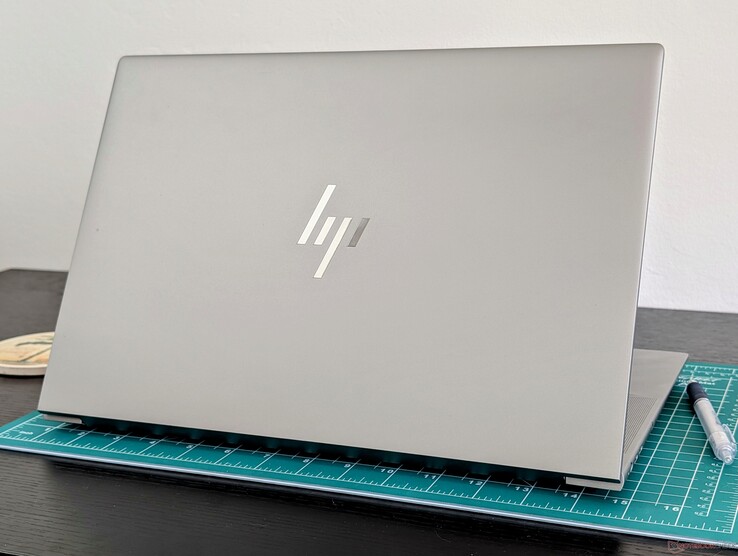
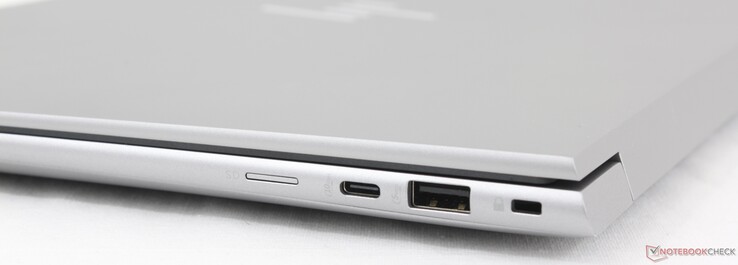
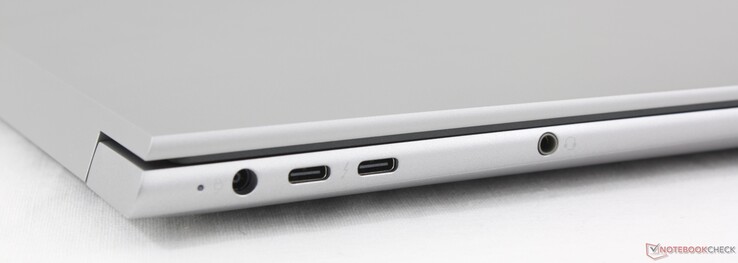
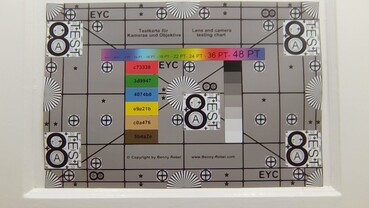

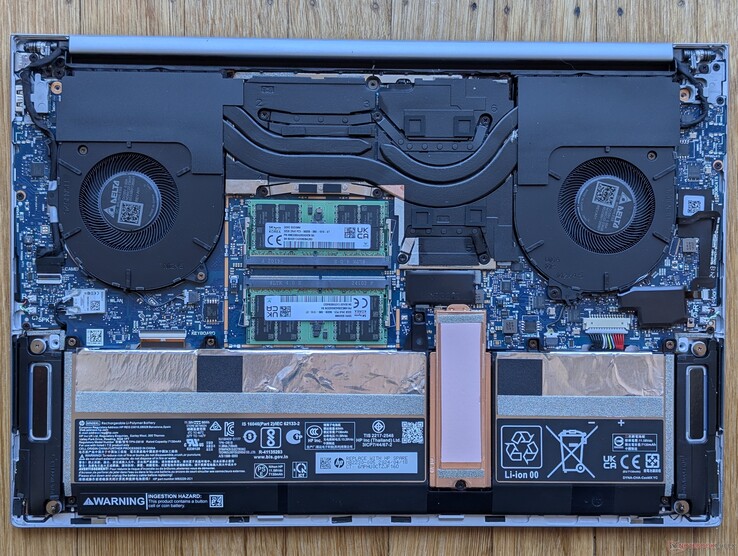
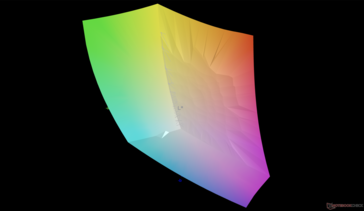
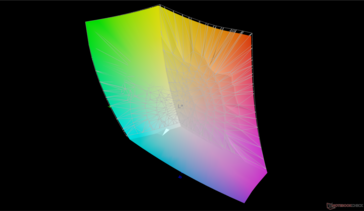
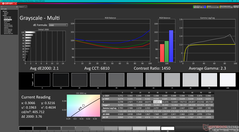
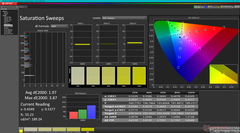
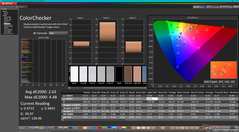
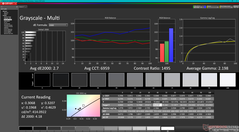
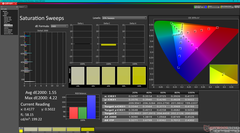
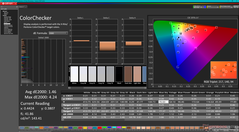
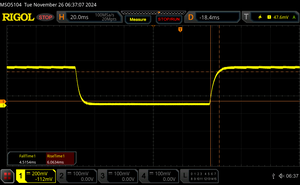
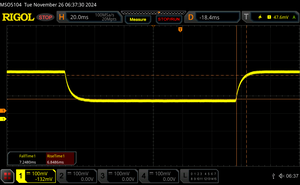
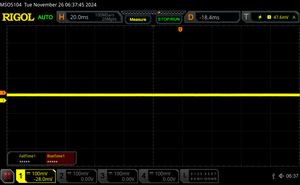
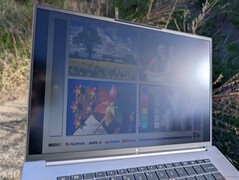
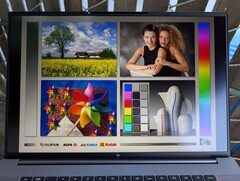
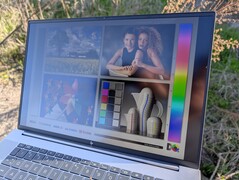
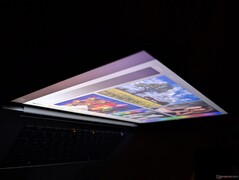
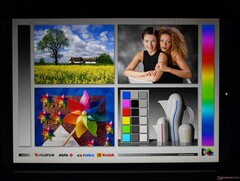

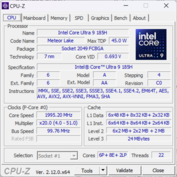
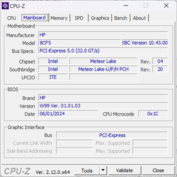
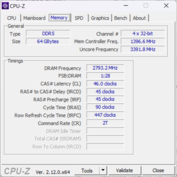
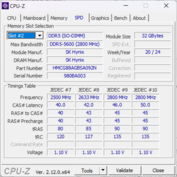
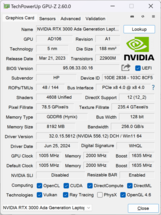
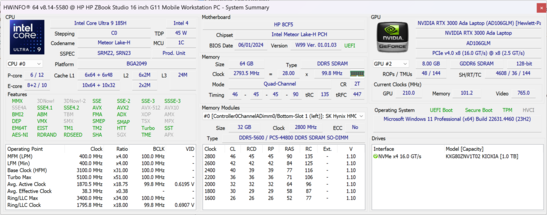
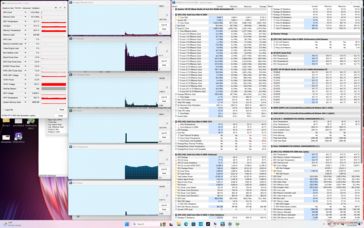
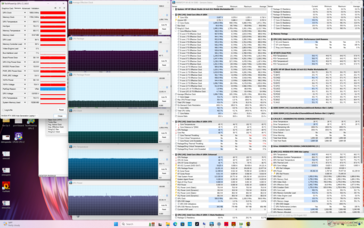
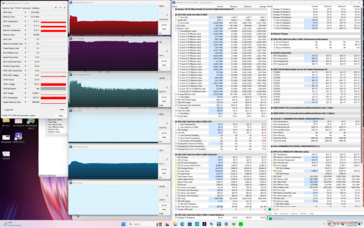
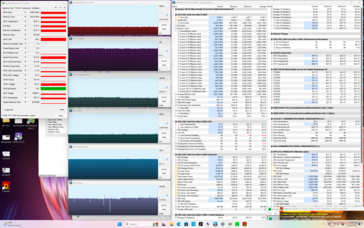
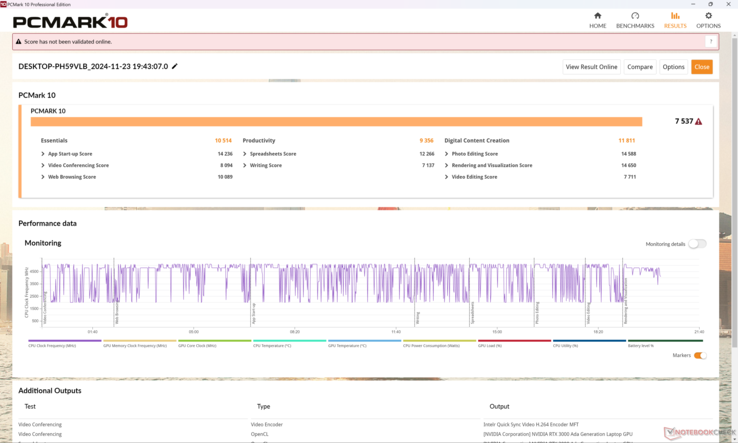
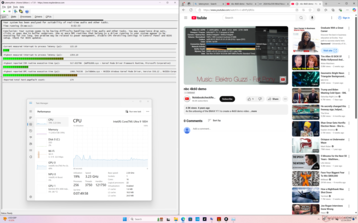
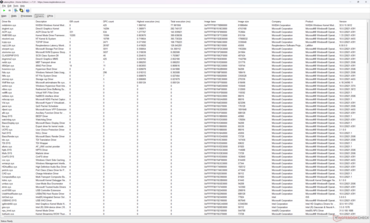
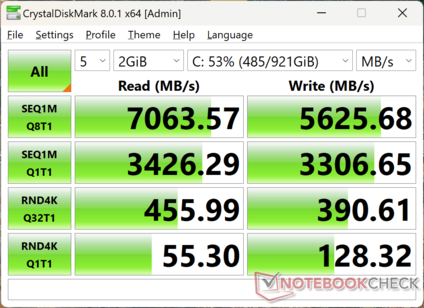
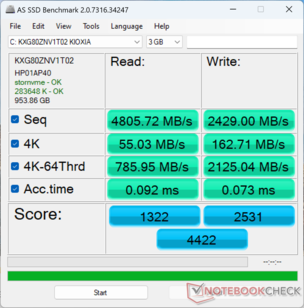

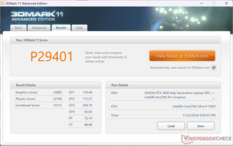
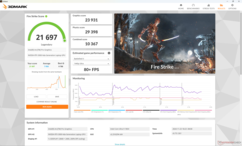
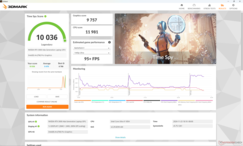
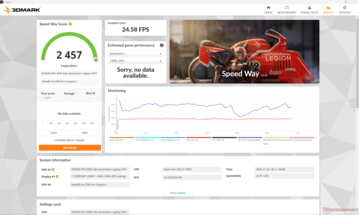

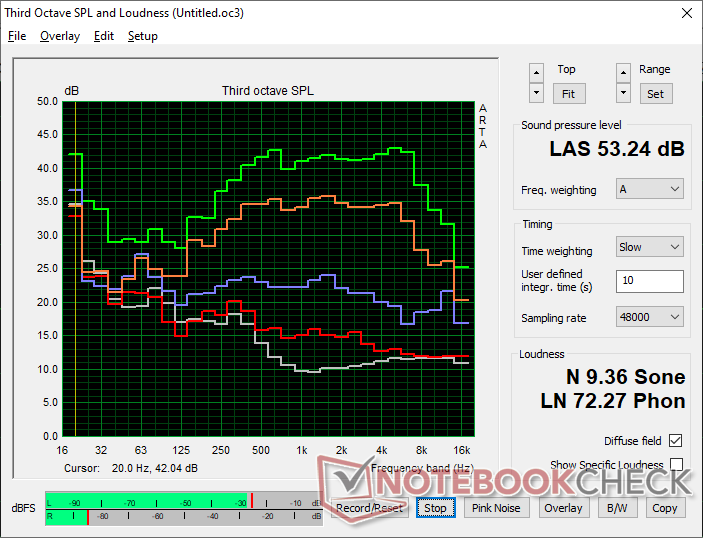
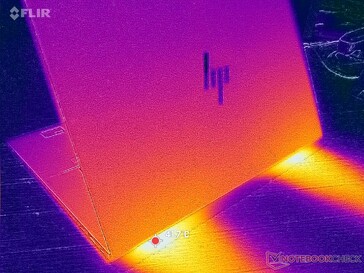
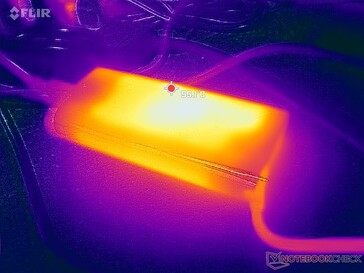

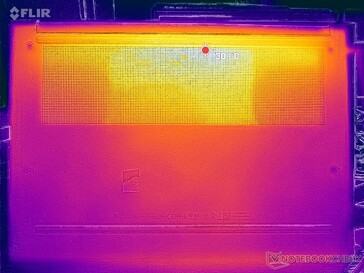
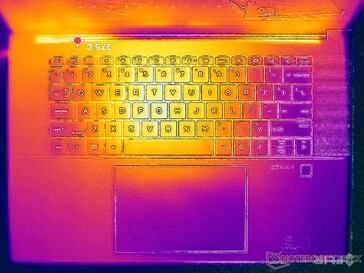
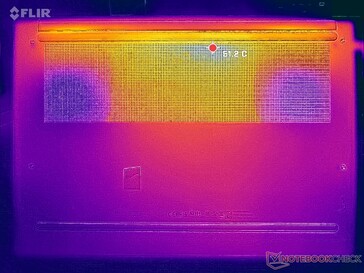
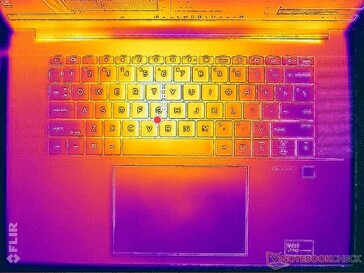
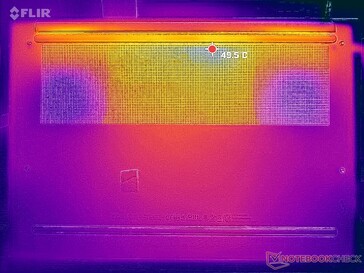

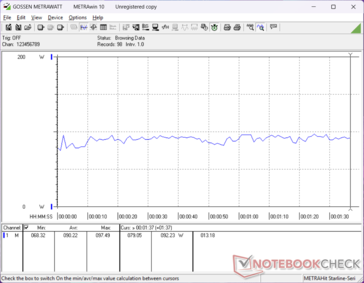
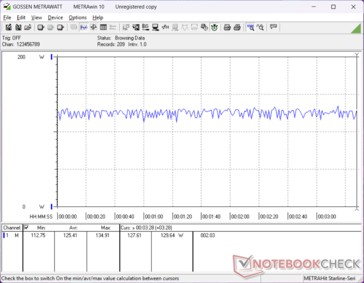
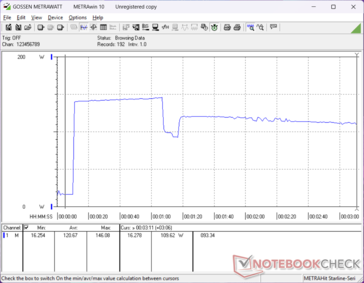
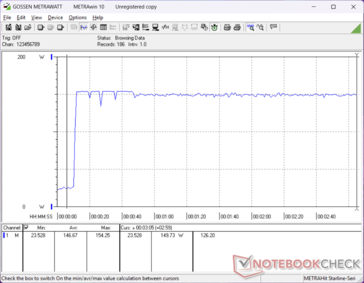
 Total Sustainability Score:
Total Sustainability Score: 








